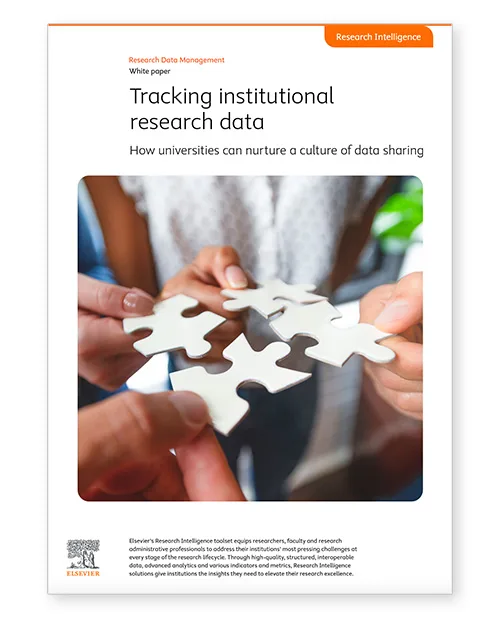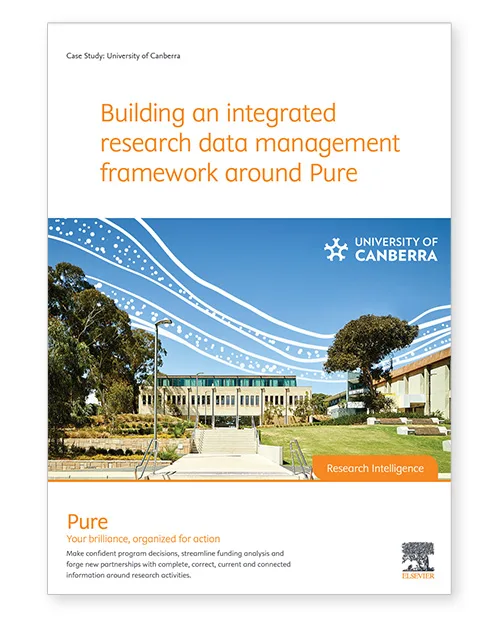Ready to find out how it works for your institution?

非常抱歉,我们不完全支持您的浏览器。如果您可以选择,请升级到较新版本或使用 Mozilla Firefox、Microsoft Edge、Google Chrome 或 Safari 14 或更高版本。如果您无法进行此操作且需要支持,请将您的反馈发送给我们。
全新设计的官网为您带来全新体验,期待您的反馈 在新的选项卡/窗口中打开
With today’s high level of interest in research integrity, transparency and openness, reinforced by policies sharing this direction, research data is rapidly rising up the agenda and now it’s time for action. Find out how to elevate your research excellence with Elsevier’s Research Intelligence toolset.
Read the whitepaper now 在新的选项卡/窗口中打开
Use cases for research tracking 在新的选项卡/窗口中打开
Your 10-step plan to begin tracking your institutional research data 在新的选项卡/窗口中打开

Discover what the University of Canberra did in response to The Australian Code for the Responsible Conduct of Research which came into effect in 2019 and dictated principles of how data is stored, accessed and shared, and laid the onus of compliance on institutions and individual researchers.

10 things I wish I had known before my institution introduced RDM

6 great reasons you should engage with research data management

This work illustrates how clustering of author communities can be improved by using metadata about the authors (such as subject area or institutional affiliation) to supplement network structure based on co-authorship or citation relationships. Using such metadata can improve clustering significantly, both in terms of human interpretability and by allowing detection of smaller groups – but weighting metadata too highly in relation to network structure can be detrimental.

